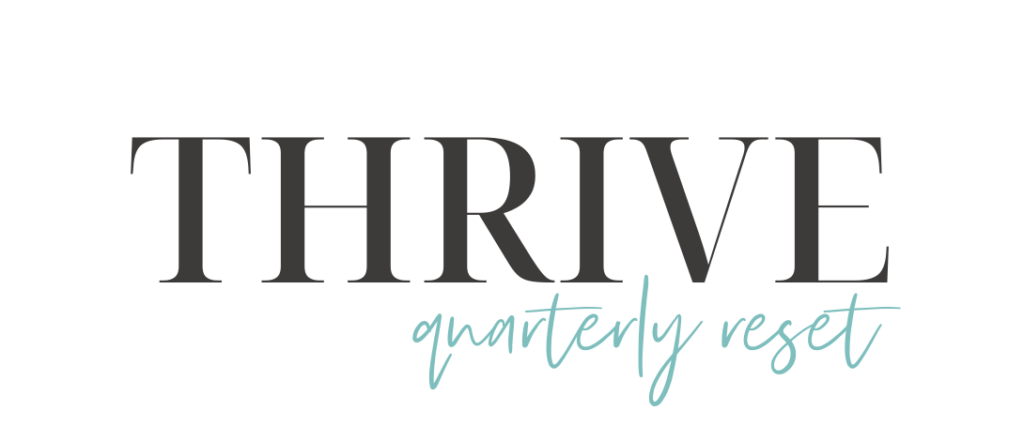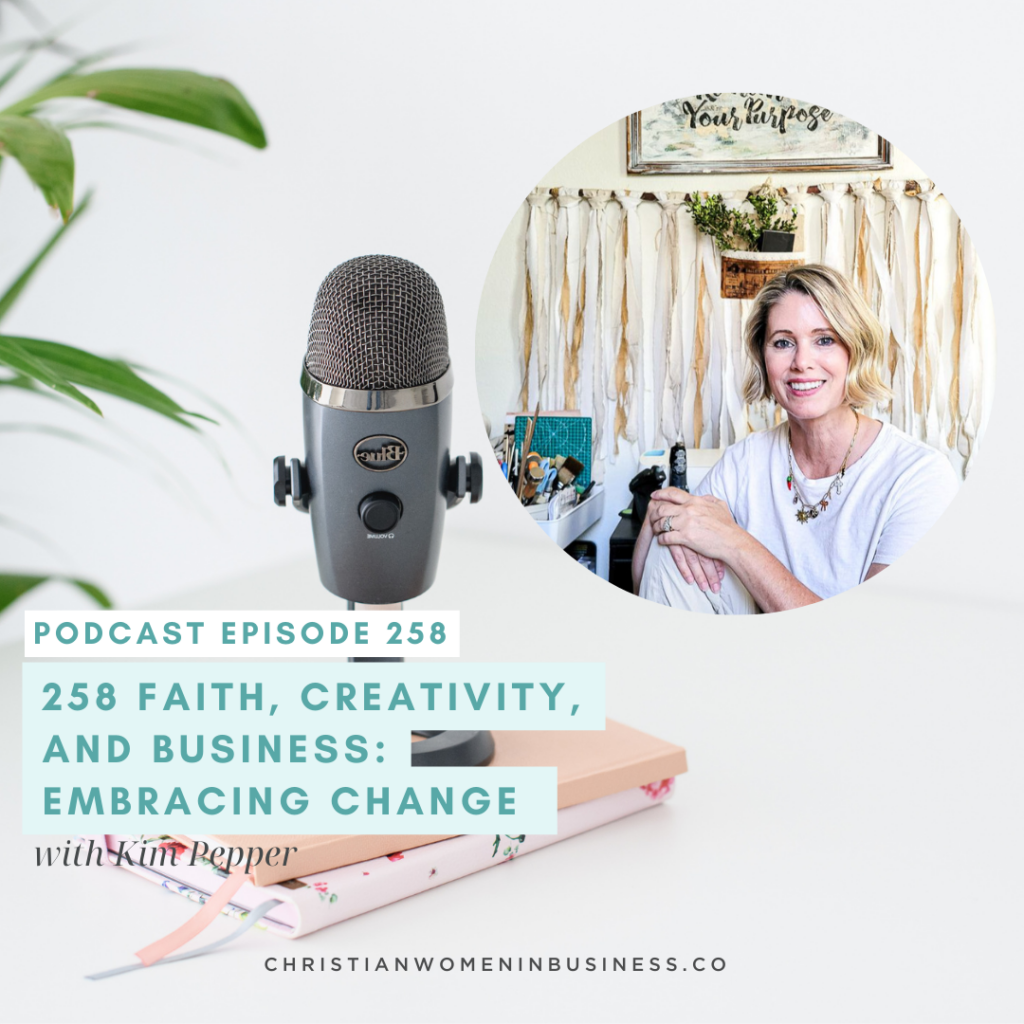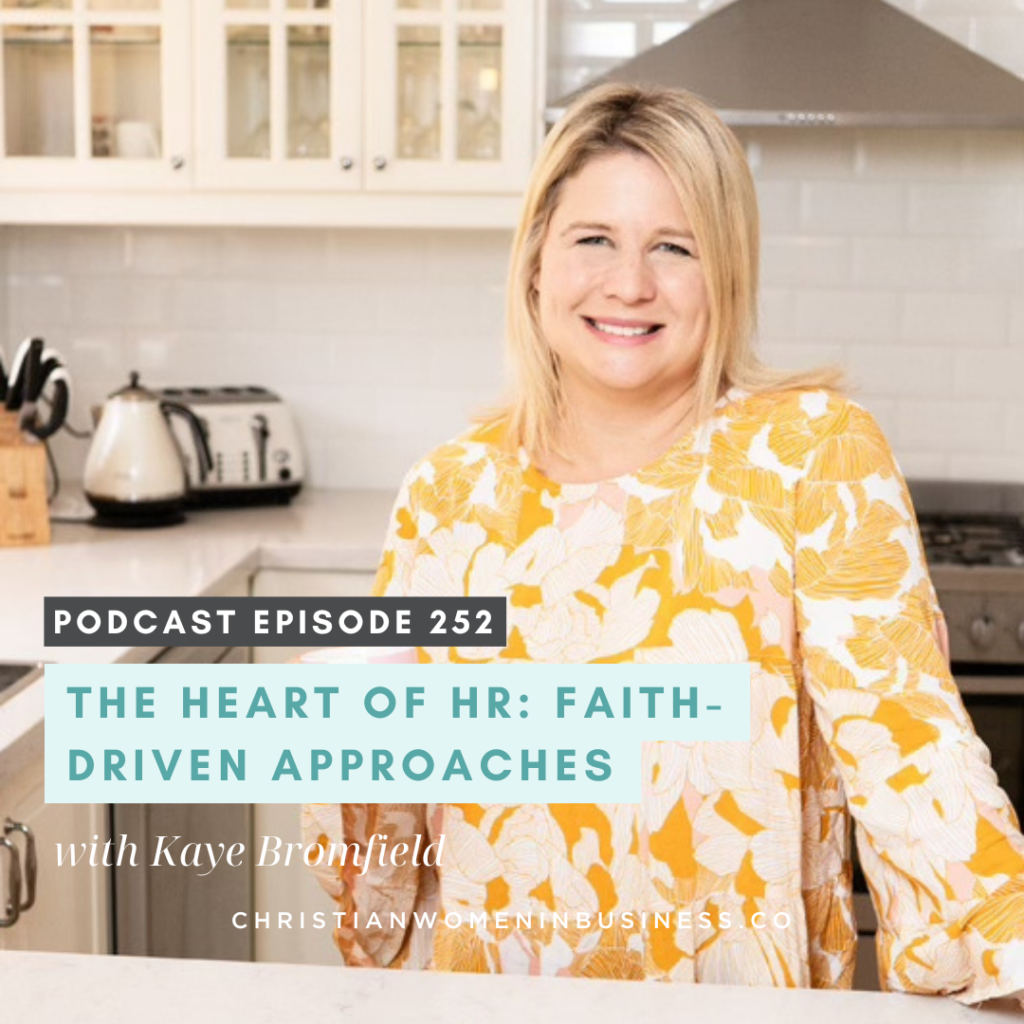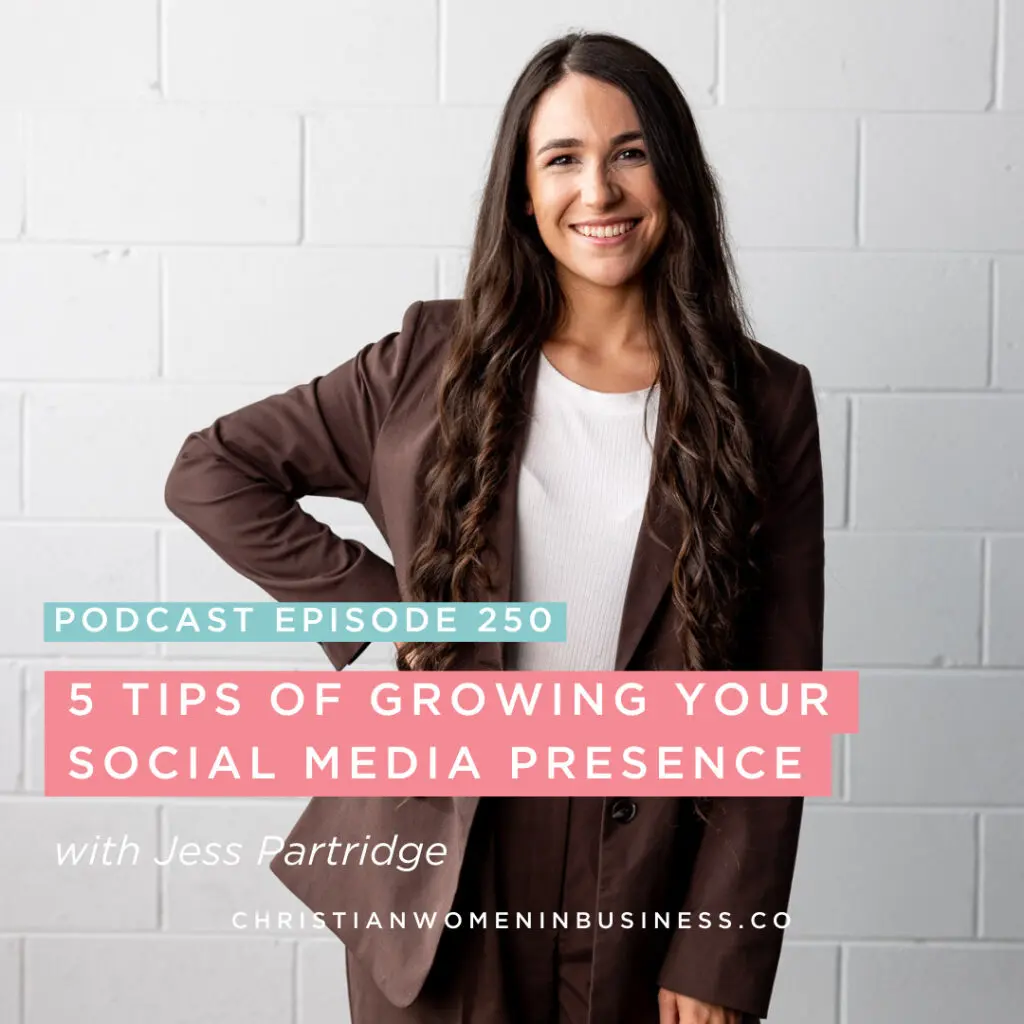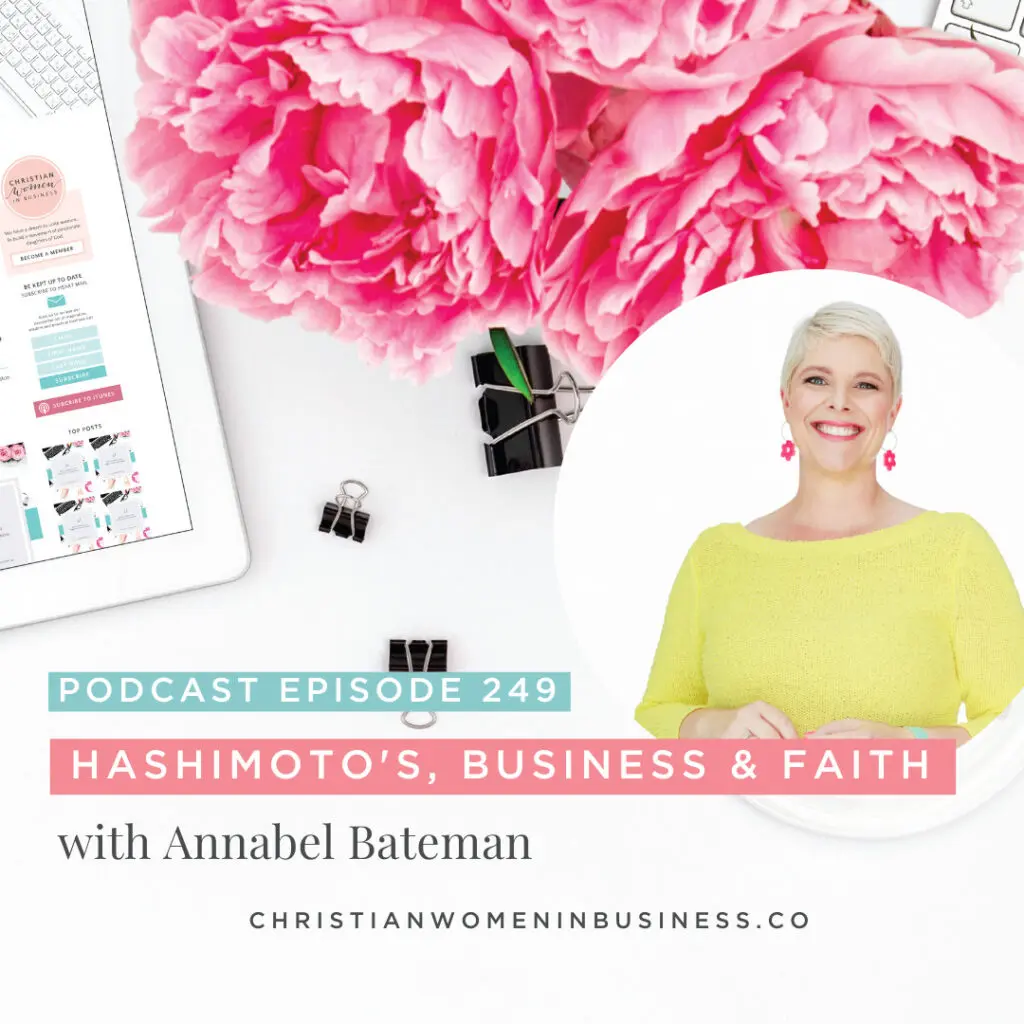259 Transformational Leadership & Faith Integration with Kelley Johnson
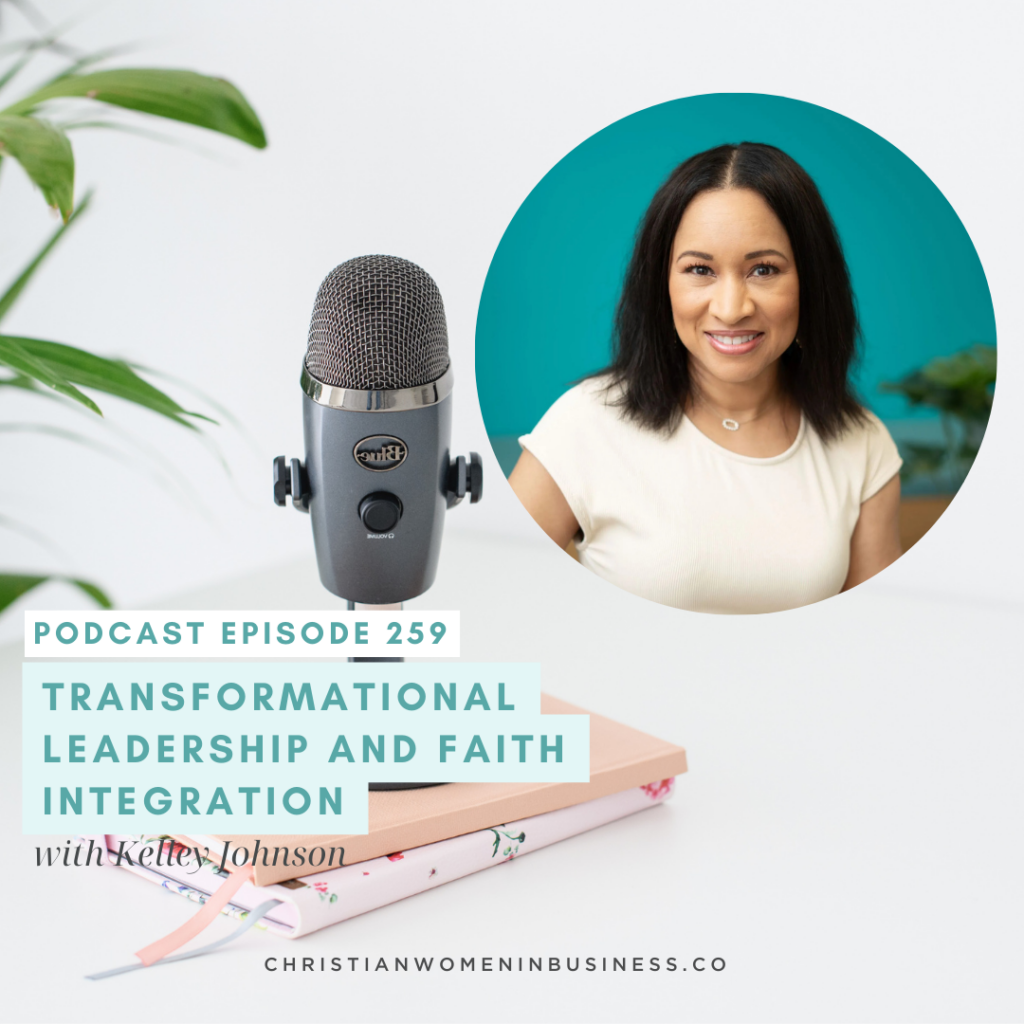
Podcast Summary
Transformational Leadership & Faith Integration with Kelley Johnson
In this episode of the Christian Women in Business podcast, host SJ welcomes Kelley Johnson from Dallas, Texas, founder of Keirus, a leadership development and technology company. Kelley shares her journey of transitioning from a corporate HR executive to a successful entrepreneur.
Key topics include the divine connection that brought her and the host together, the experience of starting Keirus, the impact of COVID-19 on her business, and how her faith guides her business decisions.
Kelley also introduces her podcast and shares her ‘Five Dynamics of Transformational Leadership’.
Finally, she discusses how she incorporates God into her business and shares her favorite Bible verse for the current season.
00:00 Welcome and Introduction
00:44 Meet Kelley Johnson
02:57 Kelley’s Journey into Business
04:59 From Corporate to Entrepreneurship
06:37 The Birth of Keirus
08:10 Navigating Challenges and Pivots
11:33 Building a Tech Platform
17:39 Transformational Leadership Tips
27:11 Integrating Faith into Business
34:01 Final Thoughts and Contact Information
Kelley's 5 Top Tips
Reflect – Look beyond the present and plan with a future-focused mindset, seeking guidance through prayer and reflection with the Lord.
Relate – Place people and culture at the forefront, valuing relationships and fostering a people-centered environment.
Research – Evaluate results and long-term impact by studying data, customer needs, and scripture. This dynamic informs both leadership decisions and business operations.
Resource – Identify and optimize available resources, including strategic outsourcing, to support growth and efficiency.
Reframe – Leverage situational awareness to adapt your message, mission, or product while ensuring thoughtful and compassionate communication, especially during challenging times.
Bible verse for this season
However, as it is written:
“What no eye has seen,
what no ear has heard,
and what no human mind has conceived”
Meet Kelley

Kelley’s passion for transforming people, processes and society stems from her diverse and successful background leading human resources, talent management, corporate communications, corporate social responsibility, and DEIB.
A visionary problem solver, Kelley is trusted for her wise counsel and ability to translate complex challenges into needle-moving strategies. She is an author, Hogan-certified executive coach, and graduate of Texas Woman’s University.
Full transcript
Sarah-Jane: Hey there and welcome to another episode of the Christian Women in Business podcast show. It’s so amazing to have you here today and we are joined from a lovely lady that we’ve had a divine connection from all the way over the big pond. , her biggest thing to do and, sorry, Her biggest mission through her business is to light the world to create transformative growth and her favorite thing to do on the weekend is sleep and spend quiet time with the Lord on my patio.
So welcome to the show, Kelly Johnson from Kerius.
Kelley: Thank you so much for having me. It’s great to be here.
Sarah-Jane: So, so our listeners get in their minds where you are in the world. Give us a spin on where you are and what part
Kelley: sure. So, , if you can’t tell by my accent, I am from the U. S. and I live in the big state of Texas.
Sarah-Jane: That’s awesome. And whereabouts in Texas?
Kelley: I’m in the Dallas area. So that would be the northern part of Texas.
Sarah-Jane: For all our Australian listeners, that is just above Waco. Where Chip and Joanna Gaines are because everyone knows.
Kelley: Okay.
Sarah-Jane: That for reference over in Australia.
Kelley: I love that reference and so it would probably take me about two hours to get to the silos in Waco.
Sarah-Jane: Yeah, that’s so fun. That’s so fun. So Kelly and I, we met at the Leadership Smit. , that was organized by Boldly, , all the way back in February earlier this year, 2024. , and since then we’ve stayed in contact. , it’s been an absolute pleasure to kind of be on each other’s journeys in and out and keep that relationship going.
And Kelly has just, released a podcast herself, which is really exciting. I don’t know if this is your first podcast that you’ve released or not, or this is
Kelley: It’s actually my third.
Sarah-Jane: the,
Kelley: hopefully third time is a charm.
Sarah-Jane: that’s awesome. , yeah. And so we thought we’d do a podcast collaboration. So Kelly’s coming on as And then I’ll be heading over to Kelly. So you can hear each other’s, , interviews. We’ll link them on the website, on the show notes to each other. So you can take a listen to both. , but Kelly’s is, I won’t tell too much because she’s going to share her story with us next, but, , it’s an absolutely beautiful podcast.
Very real, very raw, very authentic, , based, , for leaders. , so if you’re. In the business and you’re, you’re in that leadership role, which most of us are, even if we’re leading ourselves, I really encourage you to go and listen to that. And again, we’ll put that in the show notes. So Kelly, can you share with us a little bit about your journey and your story and how kind of God’s taken you to where you are today?
Yeah,
Kelley: this year and just so grateful for how God, , really connects his people, his daughters, , on a spiritual level, right? Like you can just, sometimes it’s always a treat when you meet someone and it’s like, your spirits connect. Even though you don’t really know a lot about each other, and, , I’m just grateful to have that connection with you, , SJ, and to have the opportunity for it to unfold. So, to answer your question, my journey in terms of being a Christian woman in business started about, , it technically started about nine years ago.
Officially. , I knew at 16 that I wanted to have my own business. , I’ll never forget. I was standing in my mother’s living room. , and I don’t even think I was really doing anything specific at the time, but I was standing in the middle of the living room. It was like, I want to, I want to have my own business one day. I didn’t know exactly what it would be. My mother was an entrepreneur probably around the time I was in high school. , and so I saw her journey. I saw how difficult it was. And ironically, our businesses are somewhat similar. So I do leadership development and she owned, she owned a training company. , she focused a little bit more on like technical training, , software training, but I think it’s interesting that we have, uh, sort of similar businesses and, , But this is not, my firm Kerius is not my first business.
So while I was still in corporate America, I had a couple of what we call side hustles. And I, do you all say that?
Sarah-Jane: yeah, yeah, totally. Yeah.
Kelley: Okay. So I had a couple of side hustles and they were profitable, but I found it really difficult to juggle my full time job, be a mom, be a wife, and have, , a side hustle and I traveled a lot at the time.
So my corporate career, I spent almost 20 years in corporate America where I was responsible. I was in. An executive role responsible for diversity and inclusion, , talent attraction as well as, , social responsibility or philanthropy. And so, , it was a pretty big job when I left about 9 years ago. I was a part of the han resources executive team for a fortune 500 company. And my role was eliminated quite abruptly. So I had this big disruption in my career, my personal life. Uh, the timing, I was like, Lord, what are you doing? Because this is not convenient. We had just moved into our dream home. , we had that we prayed for, that we saved for, that we worked hard for. , we had two kids.
Yeah, we had two kids in private school and it was just like, Lord, what are you doing? And so this was in kind of the fall of 2015 and, I just took that time to really reflect and to really seek the Lord in terms of, you know, what do you want me to do next? And for about six weeks I would walk and pray. Just really seeking the Lord. And by the end of that six weeks, I had my first client and I didn’t even know that I was supposed to start a business. , and so that’s really the story of how Karis was formed. Over nine years ago. It’s evolved quite a bit over the last nine years. I had a very heavy focus on diversity, equity and inclusion that was a big part of my corporate role. I’m an executive coach, and so we’ve done a lot of leadership development training, a lot of one on one executive coaching over the years, and we’ve had the fortune of our training reaching. 4, 000 employees in 10 different countries, and it’s, it’s just been a wild ride. , we even sort of transformed into a technology based company a couple of years ago, which, uh, was, was also a lot of fun.
But that’s the quick story of my venture into being a woman, a woman running a business.
Sarah-Jane: A woman of many talents.
Kelley: Thank you. Thank
Sarah-Jane: So how did you go from Leadership. Kind of training and executive training into the tech world, like what happened for you to kind of stble, if that’s the right word. , because it’s a massive transition from doing executive training to then running a tech company. Like it’s completely polar opposite of, , like actual industries if you like.
So how did that, how did that come about?
Kelley: I love that question. , so it was, it was post COVID. So in 2020, , after the pandemic hit, by the time it reached the US I’ll say, , within two weeks of the pandemic hitting, , me, the shutdown happening, I lost two major contracts. Uh, I’m talking big, like six figure contracts and they were gone.
That’s And I was like, Oh my gosh, the sky’s falling. Lord, what are you doing? You know, it was just, just yet another disruption. And, uh, hopefully you’re, you’re all starting to see a theme, , that disruption is often an invitation from the Lord. And while they are very, very inconvenient, sometimes painful, usually difficult, I am learning. To embrace those disruptions, , because I now see them as an opportunity to reset, , or the Lord’s invitation to reset. And so, , when COVID hit and I knew that I was going to have to pivot, right, , 2020, the big buzzword was the word pivot and everybody was pivoting, everybody was trying to figure out what do we do with this new normal. And I was
Sarah-Jane: Silence.
Kelley: for those who may not be familiar, , George Floyd was a, a black man who was, was murdered by a police officer. , the police officer was convicted of murder for that particular crime. And I know that it made global attention. It certainly occupied our attention in the United States. And so because of that tragedy. There was this huge cry for social justice, this huge cry for, we’ve got to do better as han beings. And my, my company started to have a surge of interest in unconscious bias training. And so we couldn’t even meet the demand like we are, our phone, our email was blowing up left and right I, I could barely even keep up with the inquiries, just handling the conversations that the initial inquiries.
And so we have this content that was available, this training, this unconscious bias training, we had it available, but it was really designed for in person delivery. I had never. facilitated it virtually. And so at first we were just doing zoom like everybody else. I knew that I needed to find a more sustainable way of supporting the demand of supporting and really meeting our clients needs effectively without losing quality.
So I knew I knew what we were capable of doing in person we were figuring out this whole virtual training thing. But I was really committed to making sure that the, the experience, the quality did not suffer because we were limited to a virtual format or delivery. And so that we needed to be able to scale efficiently, , we needed to be able to really operationalize the, the training experience and have a level of consistent quality and execution. We started to develop. E learning, , digital learning. And so we, we built over a couple of years period of time, we built a five year learning curricul, , for our clients that became available through our digital platform. So we built our own learning management platform, , We really wanted to not only own the content, but we wanted to own the delivery on the format. And so we bootstrapped it. We invested our own dollars to build the technology, , obviously to develop and write all of the content, produce all of the videos. So it was a massive undertaking. And I would say that our software developers were like, we built a platform from scratch in 18 months.
Sarah-Jane: Yeah, that’s crazy.
Kelley: yeah, our software developers were like, uh, this doesn’t happen normally. And so I
Sarah-Jane: Six years.
Kelley: God, yeah, God totally was, was there to help us.
Sarah-Jane: That’s amazing. That’s so good. And so if, , if I’m a business owner and I’m looking into getting, , delivering training, like, what is it that the product does that, how can I use that?
Kelley: Sure. So right now, , we have historically, we’ve used our Kerius platform, , to deliver our own e learning content. And so we are now looking at ways to scale again and really maximize, optimize the investment that we’ve made. And so we’re, we’re entertaining the opportunity for other organizations to purchase. Kind of a white label version of our learning management platform. , but one of my heart’s desires also to really look at how can we repurpose it for the kingdom? And
Sarah-Jane: ,
Kelley: come on that. We’ll see what, what God decides to do. But, , Yeah, I would say right now, some of the opportunities are for organizations, especially smaller companies, , who need a very flexible, , of a, an entry point into having their own learning management platform. Kerius would definitely be a great tool for that.
Sarah-Jane: Yeah, even if like you’re doing what staff training and you just need like an internal platform to, , keep all of your staff training on and that kind of stuff, it would be able to kind of do that.
Kelley: Absolutely. Yes. So it houses video content, PDFs, , you can build courses inside of the platform, , and you can register your learners inside the platform and sort of assign them different courses. And so it has a lot of the functionality of like a teachable, , It actually kind of the interface looks pretty similar to a teachable platforms for those of you who might be familiar with that or, or who have looked at it. , and so it’s, it’s a, it’s a pretty cool tool. We benchmarked against some of the best platforms as we were building our own. , but again, we really just wanted to make sure that we could also own the technology. Some, most of our clients are fortune 500, very large organizations. And so one of the reasons why we built our own platform is that we wanted our clients to have a single sign on opportunity to connect to our platform so that their employees could seamlessly connect to our content without having to like go in and what’s my login for this?
What’s my login for that? And so. our platform has SSO or single sign on capability, and that was really important, , a really important feature that we wanted to make sure we had,
Sarah-Jane: So how did you personally, in like your own mindset shift from, I’m just going to deliver content to, Oh, actually now I’m going to build my own software. Like that’s a massive transition in your mindset. Like how did that go? Was it, were you just like, okay, here’s a massive learning curve coming my way.
Let’s just hit it right on or,
Kelley: you know, so I’m an Enneagram eight. Uh, and I love to go big or go home. So I wasn’t really intimidated by. I don’t know if it ever occurred to me to sort of be like, Oh, my gosh, you know, should I do this or not? It just it, it was exciting. I wanted the I wanted the ability to scale. I love reaching the most people I can, but do it effectively and without losing quality. And so in my mind, technology really checked all of those boxes and it made sense. And I and I also just from You know, working with a financial advisor for my company, , I had, I have a CFO that sort of helped me think through the financials of it as well as, Hey, you’re, you’re doing well today as a professional services firm, adding, adding technology really diversified our offerings and created a pathway for an exit strategy.
If I ever wanted one, , that, May not be as, as beneficial if I, if I remained just a professional services firm,
Sarah-Jane: that’s so good. Good for you. What a cool story to be able to share. I know all listeners minds are probably going boof. That’s so cool, because mine is.
Kelley: Thank you.
Sarah-Jane: So, can you come with us next then? , I’m not sure where Kelly’s going to go with this. Five top tips of your craft with our audience today.
Kelley: Yes. , so I will be honest, uh, S. J. Like, that was a little hard. I was like, okay, what, what can I share? And so what, where I’ve landed, , it’s something that has benefited me throughout my career. [And I didn’t actually know it at the time. It’s it’s in hindsight over the last 15, 20 years, Lord has really highlighted the five tips that I’m about to share. I call them the five dynamics of transformational leadership. And I really wanted to share some things with with your listeners. they could use regardless
Sarah-Jane: Silence. Silence. Silence.
Kelley: or in this case, I really consider them the five dynamics of transformational leadership. , we teach this in our, our leadership development, but I want to give you all a quick version of it. So it’s reflect, relate, resource and reframe, and I’ll explain those. So transformational leaders reflect. , we think futuristically,
Kelley: If you think of the, the word in the Psalms, Salah, pause and reflect, , it’s just very biblical to have times and seasons of reflection. , and so the first step a transformational leader is to reflect. Second would be relate, and these aren’t necessarily sequential. So let me just.
Sarah-Jane: Okay.
Kelley: know that you are my disciples, if you
Sarah-Jane: So, , I have a question for you, and I’m not sure if I can answer it. , I’m not sure if I can answer it. I mean, I know you are, but I just want to ask if I can I’m not sure if I can answer it. It’s just a question. , I don’t know if I can.
Kelley: The priority always has to be how, how will my actions, how, how will my words, uh,
Sarah-Jane: Silence.
Kelley: their impact over time. , this is not just sort of a, hey, you know,
Sarah-Jane: Yeah, you can. I can’t. I can’t. It’s a lot. , I can’t. Yeah. , I can’t.
Kelley: be researching scripture. We should understand, ,
Sarah-Jane: And, uh, uh, I’m trying to figure out what I’m doing. Oh, I need to do this. Oh, I’m sorry. So, Uh, Okay.
Kelley: the kingdom, to trans to create transformative results. And so, uh, making sure that you’re really allocating your resources appropriately and strategically using wisdom from the Lord, to make sure that you are, that we are using those resources appropriately and assigning them or aligning them in the right way. One of my favorite biblical examples would be Joseph Old Testament, , and how he saved millions of lives because he resourced appropriately saving the lives of millions of people for seven years. then the last is reframe. Uh, transformational leaders use situational
Sarah-Jane: Okay.
Kelley: It doesn’t mean
Sarah-Jane: ,
Kelley: that the decision will change. Sometimes we have to
Sarah-Jane: So, , I’m going to go ahead and get started and I’m going to go ahead and show you a little
Kelley: act of adultery.
Right? And, , Jesus did not take the stance that might have made sense culturally at the time, , Those, those men who caught her were ready to stone her and they had the legal right to do that. But I love how Jesus reframed that entire situation. He reframed it around grace. He reframed it around the heart of God, the love of God.
And he said, Hey, whoever is without sin, then you get to throw the first stone. And so he
Sarah-Jane: Yeah.
Kelley: right? He reframed the situation one of love of grace, , as well as, you know, really avoiding hypocrisy, right? , and so those are the five dynamics of transformational leadership. And those are really the five tips that I would love to just share with all of you who are listening to. Help you grow to continue to make a transformative impact in everything that you do.
Sarah-Jane: Ah, that’s so good. That’s so good. I love the story at the end, , with Jesus. Is that the one where he starts writing in the sand?
Kelley: Yes.
Sarah-Jane: and the big question is what do you think he’s writing in the sand? , we had a discussion about this a few years ago and I’m like, we came to the conclusion that it was probably their names when he says he was without sin.
, and that’s when you see them one by one starting to leave and we’re like, yeah, he was probably writing their names down in the sand.
Kelley: Oh,
Sarah-Jane: That’s so good.
Kelley: that.
Sarah-Jane: Thank you so much. I, you shared that so beautifully. I don’t even feel like I need to recap. Like, that was so eloquently done , and it’s such a different perspective on leadership. , that is super refreshing , and super relatable. as well, which I think is just so good. So thank you so much for sharing.
I know that’s been a lot of years, , and trial and error of you coming together. And like you say, you put that in your training and that’s just the tip of the iceberg with it. But, , I think if we can pick one today and start working on that, so whatever you feel for this season, whether it is the reflect, relate, research, resource, or reframe, , don’t overwhelm yourself, pick one, , and, and start with that, and, you know, start implementing.
praying over it, what is it that we need to do to, , move forwards with that? And how do I incorporate that into my business and into my leadership? , so can you share with us next, Kelly, how do you incorporate God into your business? I know you shared quite a bit on this, but, , just from a back, back end point of view of you and your personal, , life and, you know, what is it that you do to incorporate God into your business?
Kelley: Yeah, I think it’s important to know. So I was, uh, I accepted Christ when I was about six or seven years old. And so I’ve been a Christian for the majority of my life. But when I became a business owner, I realized I really didn’t know how to integrate my faith into my work giving God the credit, right?
Oh, something good happened. God did it. God made it happen. Right. I really didn’t know. What it would look like to truly and authentically integrate my faith into my company. And early on, I shared the quick story, the very quick version of how the Lord provided me my first client before I even knew I was supposed to start a company. so it was really clear that the Lord was speaking and moving. And so I wanted to make sure that I. Accomplish two things with this company. Number one, I wanted to, I want to glorify God and all that I do. And number two, I want to give other people an opportunity to do meaningful work. But that was my two big goals in 2015 when I started this company, and I knew that I didn’t have the ability to do that just kind of in my own natural ability, nor did I want to do it without the Lord.
And so, , Biblical principles are, are really embedded in the way that I interact with my clients, the way that I make decisions. , and so because almost all of my clients, quite frankly, are secular large organizations, I rarely get the opportunity to do faith based training or faith based content.
Occasionally I get to work, , , I had, you know, when I’m doing one on one executive coaching, coaching, oftentimes of those clients are Christians. And so those are fun. And then I would even say, just as a quick example, , Harris was not the original name of the company. , when I first started in 2015, I just had to quickly catch up to what God was doing.
And so I had a very generic company name. I thought it was generic. , it was KJE coaching and consulting. And in, uh, three years ago, when we launched the technology platform, needed to come up with a name for the platform. And I was praying and really seeking the Lord, I ended up listening [00:30:00] to a sermon and in the sermon, this pastor Darius Daniels mentioned the word charis, and he’s like, it’s, it’s Greek and it, it stands for, it means grace, goodwill, and kindness. And I thought, Oh, wow. you ever had those moments where it’s like you’re, you’re praying and you’re seeking direction and it’s like the answer comes and you just know it in your spirit. And in that moment, I knew the platform had to be named Karis and, , it was going to be a great way to rebrand. The company, not just name the platform, but also to rebrand my firm to, to live our values out loud, right? Just in the word, just in the name itself, , grace, goodwill, and kindness. And so that’s just another quick example of how my faith is embedded in my company.
Sarah-Jane: Oh that’s so good. That’s so good. So that leads beautifully on to the next question. Uh, what’s your bible verse for this season and why?
Kelley: Yeah. So I’m going to read it, it’s first Corinthians two nine. Uh, this is what the scriptures mean when they say, no, I has seen. , No ear has heard and no mind has imagined what God has prepared for those who love him. And that verse was really dropped in my spirit about three years ago, at a, at a transitional season in my company.
And we had just moved into, , our first office space and, , that, that verse dropped in my spirit and it, it. Felt like a promise, , there’s been many times over the last three years in particular. So when you say season, this verse has been with me for at least three years now.
Sarah-Jane: Oh, that’s still a season.
Kelley: yeah, yeah, I’ve been holding on to it, because I believe it’s a promise and it keeps me going.
So that’s my why. Hmm.
Sarah-Jane: Yeah, that’s awesome. I’ve had, , the same verse that has been shared with me from all different people. , the same one or, actually, it started to go, like, it started off as one, as I54, and then it, it extended, , to a couple of other verses straight after that. , all over a few years, probably Pre Covid and then it’s still relevant to today and it still keeps coming up and it absolutely blows my mind how that you can have the most random conversations with people and they’ll just be or Whatever the situation is and that verse will still keep coming up So, you know, there’s a season that’s in the year seasons and then there’s like I should maybe change the question to share your Bible verse, whatever, and why, because, I mean, seasons are all different lengths.
But, , I really appreciate that. And it’s so cool to hear how, , how your name came about, and how it matched your values. , that’s just so cool. It’s such, this is why, like, we have the podcast, and this is why we do what we do, because we want to share those stories. And just really inspire and encourage women all over the world that, you know, just let it, things don’t have to be forced, like, we can pray, and we can keep praying, things will come naturally at the right time and it’ll, it’ll be the most perfect.
Word, , and, or whatever it is that you need. It’s just having that patience in the interim, , that I think’s the most testing. So, can you share with us where can our listeners find you? Where do you hang out on the socials and all that kind of stuff?
Kelley: Yeah. So, and I have to tell you, I have to add just a little more color to that story of when I got the name Karis. I was
Sarah-Jane: Yeah.
Kelley: in my bathroom doing my hair. I’m like literally flat ironing my hair, listening to a sermon. And I’m like, God, wait, what was that? He just said. So I like I rewound the video and I’m like, what is that word?
And I started Googling. I didn’t even know how to spell it. , so it was just, anyway, I just had to add that to it. But the best way for people to get in touch with me is on Instagram at I am Kelly Johnson. I spell Kelly with an E Y at the end. And then my website, I am kelly johnson. com is the other best way you can find me and kind of connect to all of my other contact information, LinkedIn, my Kerius website.
so those are the two spots that it’d probably be the easiest.
Sarah-Jane: Oh, that’s awesome. And we’ll pop them on the show notes, so, so don’t worry, but at least you’ve got an indication. And I love that. Most of my good ideas come when I’m in the shower or like gold nuggets or whatever it is. It’s in the shower. But , it’s ’cause you relax and you just turn like you’re. Well, I mean, it’s just staring at the wall in the shower, right?
Like, you just need that time. And other times, you’re busy just doing whatever, and your mind’s kind of switched off to the everyday, Oh, I need to do this, I need to do that, I’m worrying about this, I’m worrying about that. You know, you kind of relax a bit, and then it’s like, okay, here’s the information that you need to know.
Go and use it. That’s so awesome. Well, thank you so much for coming on the podcast show today. Is there anything else that you wanted to share with our audience before we end?
Kelley: Oh, I just appreciate you. Thank you for all the work you’re doing to support Christian women in business. And it’s just a delight to spend some time with you.
Sarah-Jane: Yeah, no worries, thank you too. Well, you’re listening to the Christian Women in Business podcast show. It’s been such a pleasure, Kelly, to have you on board today. And, , yeah, we’ll catch you next time.
Cool.
Kelley: Hey,
Sarah-Jane: Yay! I’ll just hit stop recording and then


